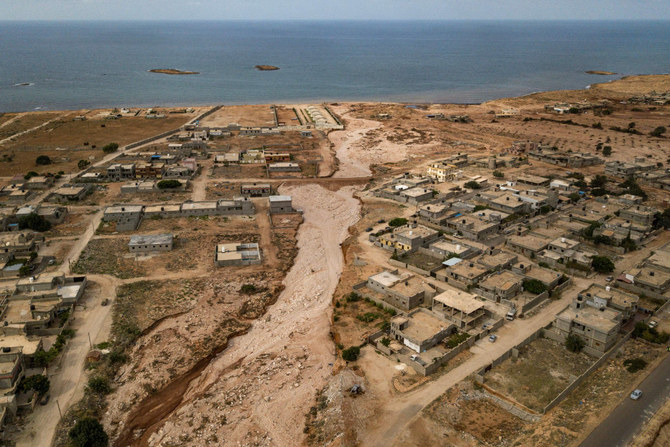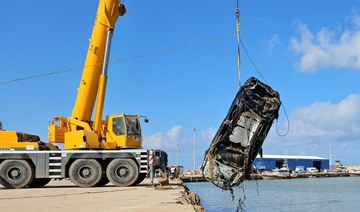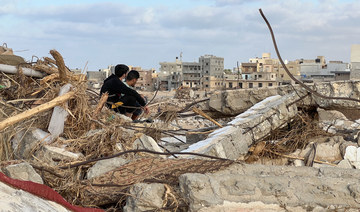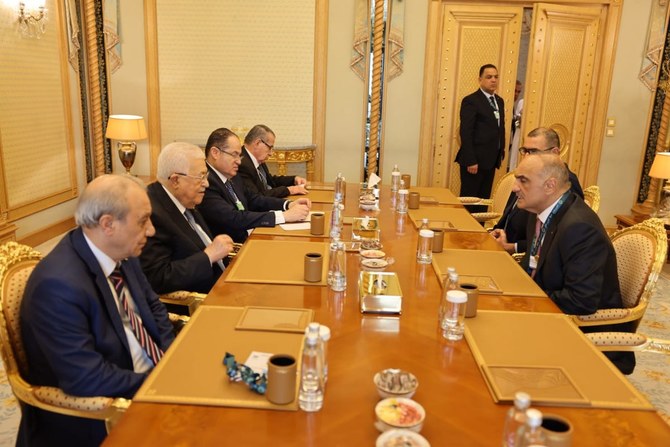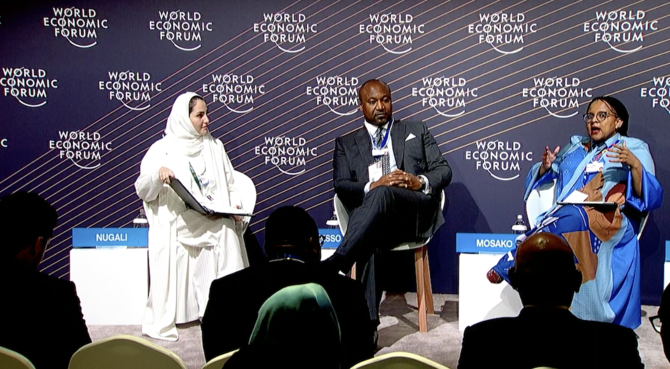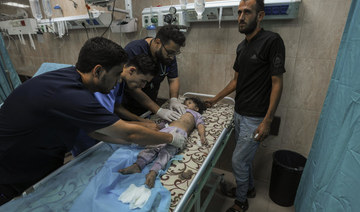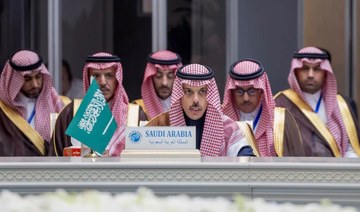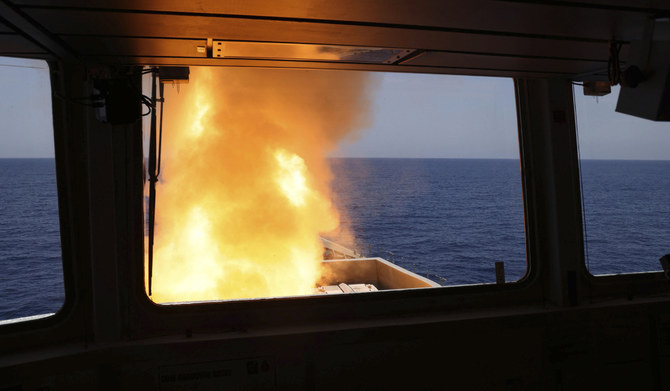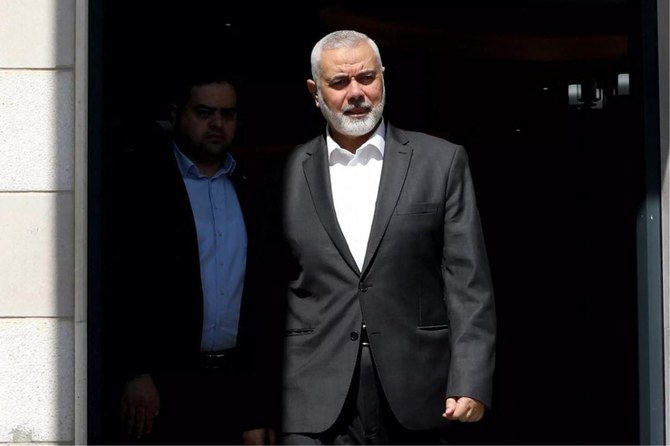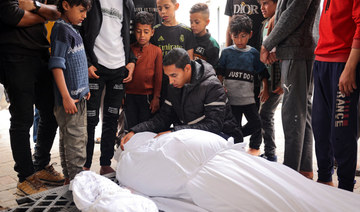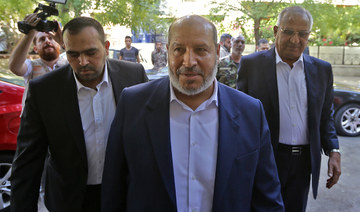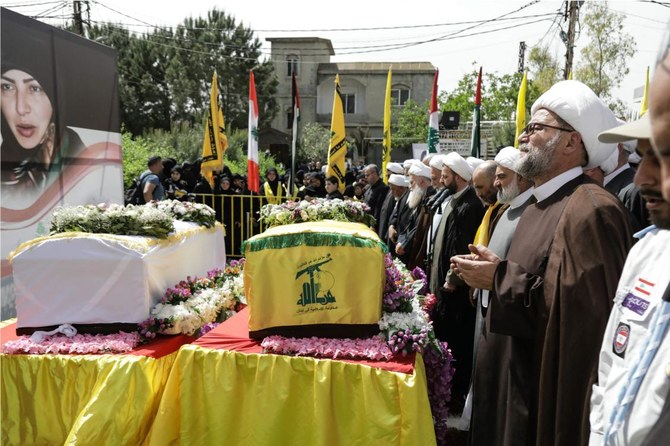BENGHAZI, Libya: Libya’s flood-devastated port city of Derna will host an international conference next month to aid reconstruction efforts, authorities in the east of the divided country said Friday.
There was no immediate reaction from the internationally recognized government in Tripoli nor any details on how the rival administration would accommodate delegates in a city where entire neighborhoods have been swept away.
A tsunami-sized flash flood broke through two aging dams upstream from Derna after a hurricane-strength storm lashed the area on September 10, sweeping thousands of people into the sea.
“The government invites the international community to participate in the conference planned for October 10 in Derna to present modern, rapid projects for the reconstruction of the city,” the eastern administration said in a statement.
It said the conference was being held in “response to the demands of residents of the stricken city of Derna and other towns that suffered damage” during the flooding.

A member of an Emirati rescue team inspects a car that was washed into the sea during the 10 September flood, moments after it was pulled out of the water, at the port of Libya's eastern city of Derna, on September 20, 2023. (Amanda Mouawad/AFP)
Despite a wave of nationwide solidarity since the flood, there was no immediate show of support for the proposed conference from the Tripoli-based government of interim Prime Minister Abdulhamid Dbeibah.
And even the office of strongman Khalifa Haftar, the main military backer of the eastern administration, questioned how many donor governments would attend.
“Are donor countries going to take part or are they going to wait for a conference organized by Dbeibah?” Haftar’s spokesman Ahmad Al-Mismari asked. “This political polarization has harmed Libyans.”
Libya has been wracked by division and on-off conflict ever since a NATO-backed uprising toppled and killed veteran dictator Muammar Qaddafi in 2011.
A bloody 2019 assault on Tripoli by Haftar’s forces ended in defeat by Dbeibah loyalists and an August 2020 cease-fire that largely holds.
There is still no widely accepted death toll for the floods which devastated Derna and nearby coastal towns.
The latest official death toll released on Friday evening stood at 3,753 but the eventual count is expected to be far higher, with international aid groups giving estimates of up to 10,000 people missing.
Bodies are still being found in large numbers, under the debris or on beaches where they have washed up after being swept out to the sea by the flood.
On Friday, dozens of bodies were delivered in a lorry and two pick-ups to the village cemetery in Martouba, 27 kilometers (17 miles) southeast of Derna, for burial, footage posted on social media showed.
Libyan media said 200 people were buried in the cemetery in a single day.
The International Organization for Migration said Thursday that more than 43,000 people have been displaced from the disaster zone.
It said a “lack of water supply is reportedly driving many displaced out of Derna.”
In Soussa, about 60 kilometers (40 miles) to the west, residents complained that they too had no access to drinking water after the flood badly damaged a desalination plant.
Instead, volunteers have to “bring water from nearby cities in big trucks,” 34-year-old Ahmed Saleh told AFP.

A volunteer kitchen staff prepares meals for people displaced from eastern Libya following a deadly flood and housed in Tripoli, at a kitchen facility in the capital on September 23, 2023. (Mahmud Turkia / AFP)
Mobile and Internet services were restored in Derna on Thursday following a two-day disruption that came after demonstrations by angry residents on Monday.
The protests saw hundreds of demonstrators gather outside the city’s grand mosque, chanting slogans against the eastern-based parliament and its leader and calling for accountability over the high death toll.
Amnesty International reported “arrests of critics and protesters” in Derna and criticized “efforts to choreograph and control media access.”
The dams that burst had developed cracks as far back as the 1990s, Libya’s top prosecutor has said, as residents accused authorities of negligence.
Scientists from the World Weather Attribution group said in a report issued on Tuesday that a deluge of the magnitude seen in eastern Libya was an event that occurred once every 300-600 years.
They said such downpours were both more likely and heavier because of human-caused global warming, resulting in up to 50 percent more rain.





